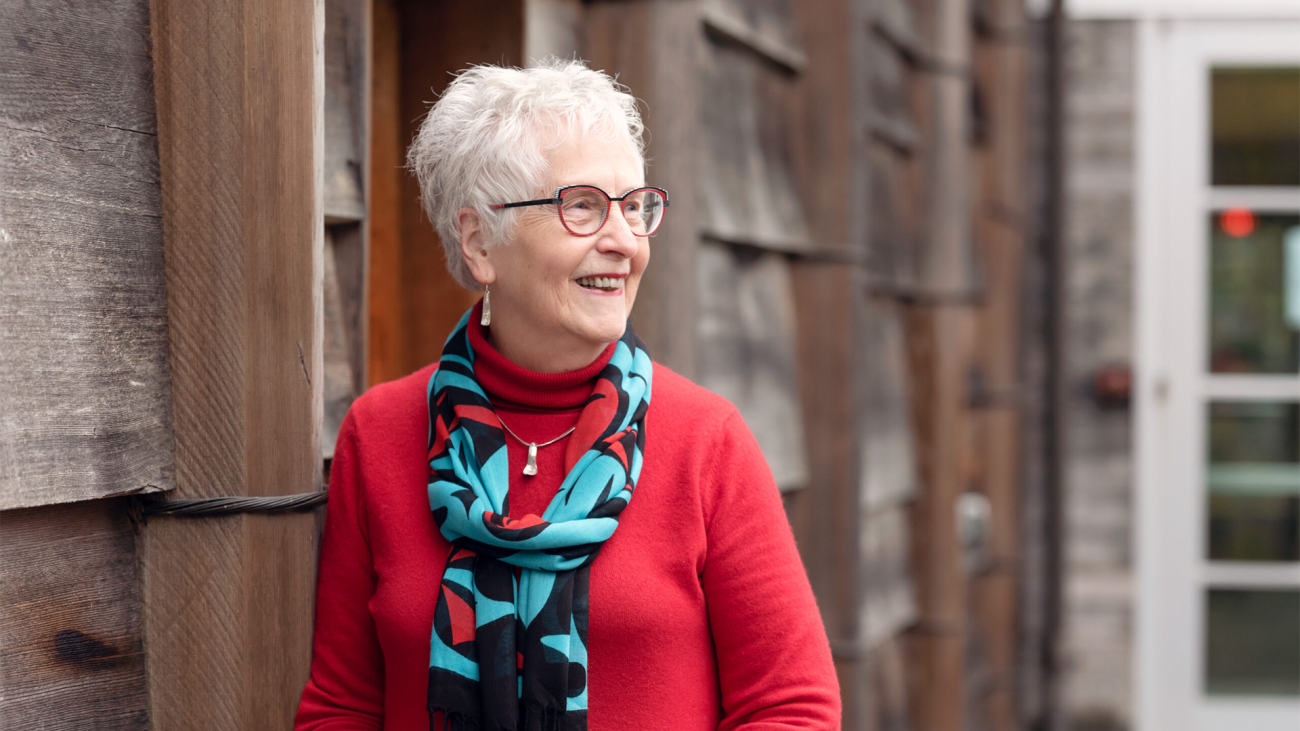An alumna inspired to make a difference for Indigenous students
Recognizing the crucial need for more Indigenous law professionals working through the court system, Linda Hull has created a new endowed award for Indigenous students.
The Peter J Hull and Linda J Hull Endowment Fund to Support Indigenous Students comes from a place of recognition by Linda Hull, informed by her childhood and professional experience as a lawyer. She recognizes a crucial need for more Indigenous legal professionals who understand the barriers facing Indigenous people in the court system.
Linda’s interest in Indigenous peoples and their culture started as a child in her hometown of Banff, Alberta.
“I was born in Banff in 1944. What I remember about the summers was the Banff Indian Days, which would be the week preceding the Calgary Stampede. People from the Stoney Nakoda Nation near Morley, Alberta, would come to Banff to parade. I was swept up in the regalia that they were wearing.”
As a child in the 1950s, Linda and her friends would meet and play with children of the Stoney Nakoda Nation. It’s a fond but bittersweet memory.
“When I learned about the tragedy of the residential school system many years later, I often wondered — were those kids I met in residential schools?”
When Linda’s husband Peter enrolled at UBC for his undergraduate and law school degrees, she supported him by working for the Vancouver Police Department. She would later pivot to provincial court reporting. After Peter graduated from law school, they lived in Calgary and Victoria before returning to Vancouver, where Linda enrolled at UBC. After getting her BA, she contemplated her next move.
“I looked at the master’s programs and didn’t see anything in the calendar I was interested in,” said Linda. “So my husband just said to me, ‘You know a lot about law, why don’t you go to law school?’ I said, ‘Yeah, why not?’ And that was how I backed into it.”
At age 41, Linda graduated from law school and practiced criminal defence for ten years. During that time, she and her husband would have many Indigenous clients who had been marginalized in the court system.
“We talked about it quite a bit. At that time, we had no idea at all about property values or whether we’d even have any money to donate for UBC Indigenous law students,” says Linda. “But, I had a bit of a windfall on our house when I sold it five years after Peter died — with more than enough for an endowment.”
Linda believes there is an urgent need for a new generation of Indigenous law practitioners — lawyers who can identify with their clients while dealing more effectively with the many Indigenous concerns that need redressing through the court system.
“With the issues today, I’m seeing the need for more Indigenous lawyers to present cases in court,” says Linda. “Whether it has to do with their land, residential schools, or treaties that should never have been signed — I think Indigenous lawyers are the best ones to present those matters in court.”


































